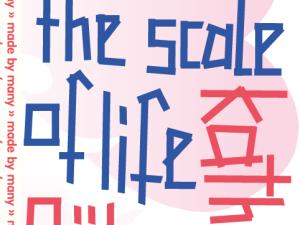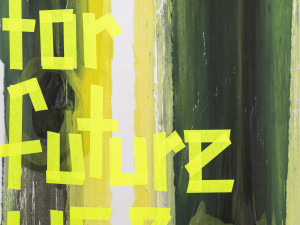COMPOST. Kathrin Böhm: Turning the Heap
–
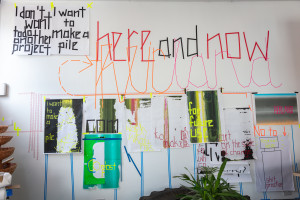
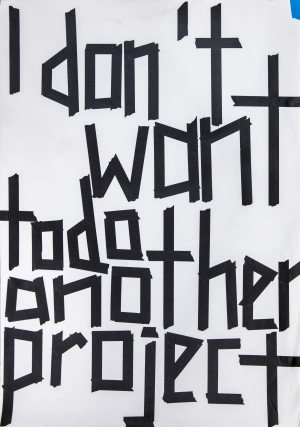
for Compost at The Showroom, 2021. Courtesy of the artist
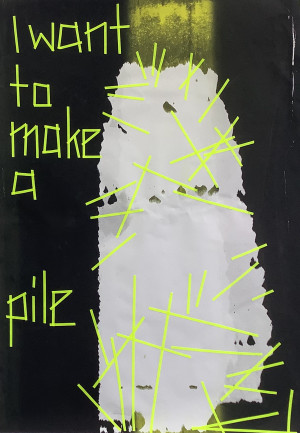
for Compost at The Showroom, 2021. Courtesy of the artist
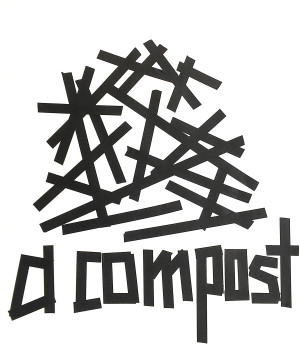
for Compost at The Showroom, 2021. Courtesy of the artist
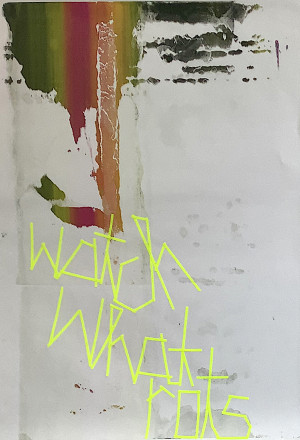
for Compost at The Showroom, 2021. Courtesy of the artist
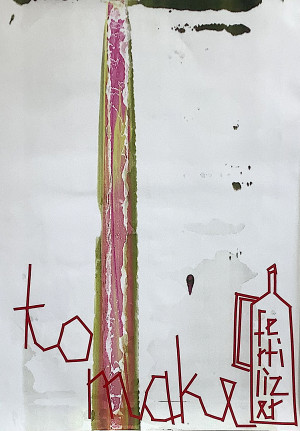
for Compost at The Showroom, 2021. Courtesy of the artist
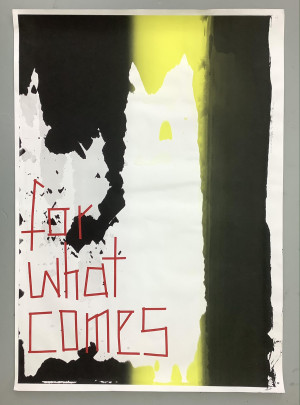
for Compost at The Showroom, 2021. Courtesy of the artist
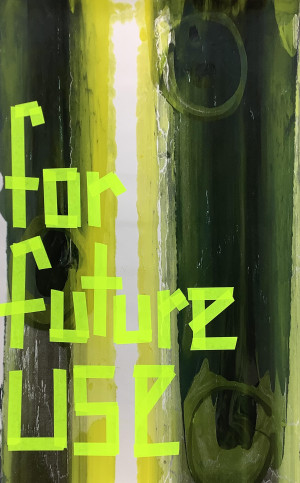
for Compost at The Showroom, 2021. Courtesy of the artist
Architectural structures, tape towers, haystacks, a drinks company, posters, books, a pantry, trade-shows, pots with noses…
Compost was a unique collaborative exhibition that explores twenty years of artist Kathrin Böhm’s practice. For six weeks throughout June and July 2021, a cumulation of objects and methodologies filled the gallery space at The Showroom, opening up an invitation to contribute to a process of fertiliser-making: to sieve through, to assess, to archive, and to reformulate Böhm’s practice by making use of her methods of production, working one-to-one, collaboratively, and in public.
Kathrin worked on-site at The Showroom daily throughout Compost; and in a synthesis of spatial, visual, social and economic processes, the collective act of composting was organised around principles of usership, accessibility, and enacting modes of economic and cooperative sustainability; all guided by an urgent sense of discontinuing ‘business as usual’. For Böhm, Compost in the form it took at The Showroom has been in-the-making for many years, stemming from a deep desire to not just produce, but to process and to carefully consider what to do next: what to continue, what to leave behind, and the need for fundamental shifts grounded by an acknowledgment of our entangled interdependence.
Compost reopened for a second phase between Wednesday 15 September – Saturday 16 October; opening up a space to start drawing out fertiliser for future use, whilst dissolving the materiality of the work through swapping, buying, giving, taking and trading; enacting possibilities of queering economies discussed in the Icebergian Economies of Contemporary Art (The Centre for Plausible Economics).
It was possible to visit the Compost website to tune in online via webcam during opening hours, from Wednesday-Saturday, 12-5pm.
A live programme of talks, workshops, and 1:1 drop-ins was also held at The Showroom and online. The programme was updated weekly on the website compost.kathrinbohm.info. Designed by An Endlesss Supply, the site went live in tandem with the opening of Compost in June 2021.
Compost opened with a live online event on Tuesday 15 June, 4.30-6.30pm GMT, in partnership with PARSE Journal, Gothenburg for the interconnected launch of issue 13: On the Question of Exhibition. A recording is available to watch again online here.
Compost: Turning Points
In January 2021 Böhm wrote the following statement:
For me this is the year to compost.
To compost the many things I have made and been involved with, and to make fertiliser for the future. This plan has been in the making for a while, and to enter a new year, the one in which we get used to the end of things as we know them, makes the compost heap a timely rotting pile.
The publication of ‘The Social (Re)Production of Architecture: Politics, Values and Actions in Contemporary Practice’ by Doina Petrescu and Kim Trogal in 2017 was an important moment for me - when an idea becomes an embodied experience, and won’t leave. The simple but fundamental realisation that everything we do either supports or undermines a system. If we want systemic change, we need to care about the re-production of the values and systems we want, and not just their set up.
In early 2020 I wrote in big letters, that I would not do another project - instead I want to make a pile, and to see what rots and observe what survives. The compost heap and fertiliser making is in preparation.
A guiding principle of transparency has been fundamental to the economic, social and material process of planning Compost and its realisation in public at The Showroom. The open format of an exhibition-in-use enables this collation of a body of work and its past contexts, to sieve through whilst actively reflecting, ‘turning the heap’, and in this way to produce fertiliser for the future: for Böhm, for The Showroom as a team, and for everyone who becomes collaboratively involved.
Reciprocally Compost constitutes a shared process of redefining institution-building for The Showroom; taking this approach to artistic production, exhibition-making and new models of sustainability as a method of enquiry. If under the one-to-one circumstances offered by Compost everyone becomes a ‘user’, what kind of user-ship will these processes generate? And if each user affects the activities of piling-up, reviewing, archiving, socialising, reading or simply being in the space, how will this determine, augment or change the nature of the exhibition-in-use and the work itself over time? Is there a case for collective ownership? What sorts of publicness does Compost establish?
The decision to ‘make a pile’ is conceived in parallel to its dissolution, which took place during the final closing week of Compost. What does dissolution mean in this context and under which circumstances will it take place? Which new conditions might emerge from these processes? What are the possibilities for The Showroom, as an institution, to germinate new modes of sustainability?
Equipping for hybridity and future use
A constant for Kathrin Böhm is her 1:1 scale of operation, where the work is produced on the scale of the topic it addresses. Compost was therefore an exhibition that operated on the scale of the gallery and within the publicness of the institution.
To enable the process of composting at The Showroom, the space was equipped with new, hybrid seating and shelving structures, which were designed for use on-site through conversations between Kathrin, The Showroom curatorial team, artists Adam Shield and Elliott Denny; and subsequently built in-situ by Shield and Denny, followed by further preparations and finishing touches with Paulina Michnowska. Almost all of the materials used were repurposed from those that were readily available at The Showroom in May 2021; the material residue of past installations being put to new use. A parallel digital space was built in collaboration with designers An Endless Supply; and the digital life of Compost connecting activities at The Showroom to online publics was enabled by Andy Jenkin.
Compost involved a new partnership with Art360 Foundation and a collaboration with archivists Frances Whorrall-Campbell and Laura Callegaro, to archive Böhm’s work to date as a live process in public, creating a database for future use.
Collaborators looking after the compost included Elvira Dyangani Ose, Lily Hall, Seema Manchanda, Katherine Finerty, Adam Shield, Elliott Denny, Paulina Michnowska, Andy Jenkin, Harry Blackett, Frances Whorrall-Campbell, Ellie Porter, Mark Waugh, Carson Arthur, Vanya Cantone, Mahsa Dehghani, Kaitlyn Walker-Stewart, Campbell McConnell, Oana Damir and Corrie Denby McGowan.
